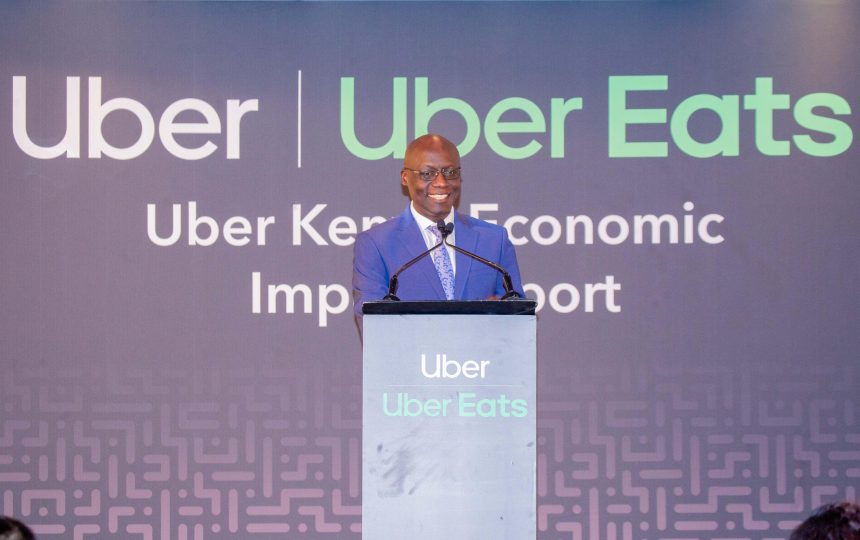Special Envoy on Technology, Ambassador Philip Thigo has underscored the critical role of technology in shaping modern mobility, inclusivity, and data-driven governance in Kenya.
Speaking at the launch of Uber’s first Economic Impact Report at the Fairmont Norfolk Hotel in Nairobi on Tuesday, Thigo cited the ride-hailing apps, contribution of Ksh 14.1 billion to Kenya’s economy.
“This economic impact report, could have serious influence on what the Kenyan National Bureau of Statistics does in terms of economic planning and strategy. The amount of data produced by platforms like Uber not only drives business growth but also offers insights that can be leveraged for development in other sectors—creating new opportunities, businesses, and societal impact,” said Thigo.
The report, commissioned by Public First, an independent consultancy firm headquartered in London, revealed that in 2020 alone, Uber drivers across the country generated an additional Ksh 2.2 billion in higher income, averaging 37% more earnings than their next best alternative.
Head of Uber East Africa, Imran Manji, emphasized Kenya’s growing role in Africa’s digital economy, which is currently valued at $115 billion. With only 33% internet penetration, the potential for growth is immense.
Since launching in Kenya in 2015, Uber has revolutionized the movement of people and goods across cities.
The company has expanded its services into Kisumu, Eldoret, and Naivasha, with Uber Eats, launched in 2018, contributing significantly to local businesses and creating opportunities across 40 cities in Africa today.
Manji also lauded Uber for the successful launch of electric two-wheelers, Uber’s first electric product in Africa, marking a milestone in sustainable innovation, with over one million trips completed on electric boda bodas in Kenya alone.
The report highlights that Uber boosted Kenya’s nighttime economy by Ksh 167 million and increased the value of the country’s tourism sector by Ksh 2.7 billion last year.
Restaurants and eateries also benefited from an additional value of Ksh 534 million through Uber Eats in 2023.
“Today, tens of thousands of drivers have been able to access flexible earning opportunities through mobility and delivery on the Uber and Uber Eats platforms,” said Manji.
According to the Public First report on safety, 79% of adults in Kenya agree that without ride-hailing services, it would be difficult to find a safe way to travel, especially at night.

The report also highlights Uber’s positive impact on women’s security. 70% of female riders surveyed believe that using the Uber app is the safest way for them to get home compared to other alternatives.
“Earlier this year in Kenya, we launched audio recording, which is a feature that lets a driver or a passenger set a default when a trip is recorded. This means that there is a greater sense of security and a greater efficiency in any dispute resolution process,” said Manji.





